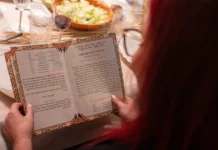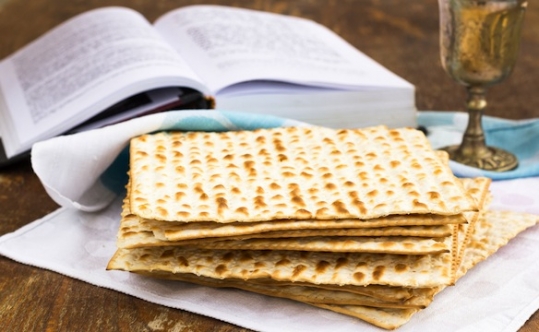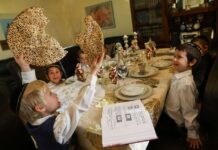My kids could care less that they’re Jewish.
They associate it with having to go to Hebrew School, which, let’s face it, I didn’t like either when I was a kid. But eventually, their attitude started to become concerning. They are growing up with a lack of tradition, faith and pride in who they are and where they come from.
We don’t go to synagogue, we observe the major two holidays, but then only barely. They’ve worn a kippa a handful of times. Perhaps a very small baby handful. In a few years they’ll have a bar mitzvah and won’t know what it is. They’ll grow up, get married and won’t care whether they stand under a chuppah. They’ll have kids who will grow up to know even less about their heritage. And that would be a shame.
We’ve been Jewish for as long as there have been Jews, and it would be sad for the buck to stop with us because we didn’t make the effort to pass along the tenants of Judaism. Both their father and I grew up more observant than we are now. We understand the traditions and values and importance.
My divorce shook my faith, and that’s probably when I started being less observant. I know that’s not a good excuse. Perhaps I’ve just gotten lazy. Either way, it amounts to the same thing: We are doing a crappy job of passing along our faith.
But maybe it’s not too late to change that. To begin, their dad thought it would be nice for them to have Shabbat, or Friday night dinners. They’ll get together with family and friends and gain a sense of family and community, hear the blessings over the wine and challah and try the traditional Jewish foods.
They have time to learn. It can be taught. Maybe through Hebrew School. Maybe through me.
I agreed that it would be a nice tradition to teach them going forward, but because they display so much resistance to being Jewish in general, I didn’t think they’d welcome Shabbat with open arms.
They needed a reason to want to do Shabbat. When I came across a book in the children’s section of the public library about Kristallnacht (The night of the broken glass, November 9, 1938), I decided I’d check it out and read it to them. Well, perhaps more accurately, I thought I might scare them into understanding why it’s important to be Jewish.
I read the story to them and they listened with rapt attention. I added my own commentary. “Imagine, just because you’re Jewish, someone could come along and smash your store windows. Would that be fair?”
They shook their heads no.
“Imagine, just because you’re Jewish, someone could come and take your daddy away to prison.”
“No!” one of my kids yelled. “Not daddy!”
“I know. That wouldn’t be right to do to anyone just because of their religion or how they look or where they’re from or what they believe. That’s not how you treat human beings.”
By the time we got to the end of the story, I summed it up for them. “Boys, this is why it’s important to be Jewish. Lots of Jews died just because they were Jewish. If we decide we don’t want to be Jewish just because we don’t like Hebrew School, we won’t pass on something that was important to our ancestors. You have to honour who you are.”
When I tested them a few days later they seemed to get it. “Why is it important that we’re Jewish?” I asked my oldest.
“Because lots of Jews died just because they were Jewish and we’re still here,” he said.
“Exactly.”
That part of my job was done. They still don’t like Hebrew School, and at our Passover seder tonight, they likely won’t know the four questions or any of the songs that have been sung for generations. For now, that’s OK.
They have time to learn. It can be taught. Maybe through Hebrew School. Maybe through me.



























